



Catching up with Beyoncé before her world tour (in between gigs at the Inauguration and the Oscars), Jonathan Van Meter discovers why the superstar never slows down—she's unstoppable.
Photographed by Mario Testino.
February has barely begun, and Beyoncé is already having the biggest year of her life. Just a couple of weeks after her historic, indelible star turn at the presidential Inauguration, she has found herself, yet again, at the center of another worldwide television event with an unfathomably huge audience: the Oscars. Although she is in the midst of a grueling schedule of her own—preparing for a world tour that kicks off this month—she has somehow found time to rehearse for what might be the most challenging performance of her career: a high-wire act that essentially packs the history of the movie musical into five minutes of showstopping song and dance. Opposite Hugh Jackman (gulp). Live.
The weekend before the telecast, Hollywood's ultimate showman, Baz Luhrmann, who is directing this big, pizzazzy number, calls me in between rehearsals. "At some point," he says, "as Hugh was inventing his own little musical out of many famous musicals, he realized he needed a leading lady. The question became: Who could that be? Who can sing and dance and act? It's a fairly rare combination." Enter Beyoncé.
"There are many people who have powerful voices," says Luhrmann, "and then there are rare stars—whether it's a Streisand or a Louis Armstrong or a Maria Callas—whose voice is recognizable no matter what the material. That's what makes a great musical star: They put their imprint on anything they're given. Beyoncé absolutely has that." He pauses for a moment, and then for good measure adds one last piece of high-flying praise: "And as a dancer, there's not a step you can give her that she can't pick up."
If her director is suitably impressed, her costar is positively giddy. "Just watching how she processes everything, she's so fast," says Jackman. "She'd never heard the song 'Top Hat,' and she just listened to it once, and she was sort of humming along with it, and then she heard it another time, and then she just sang it like it had never been sung before, in a way that was so sultry and soulful and sexy and engaging. You thought to yourself, This is the best version of this song I've ever heard. I just found myself going, 'Oh, my God, I want to do movies with this girl. I want do a movie musical!' "
When Beyoncé finally appeared out of the darkness at the top of the stairs on Oscar night—every inch the showgirl in red sequins and top hat—she looked fabulous and sounded even better. The whole number was classic Baz Luhrmann: pastiche stirred into happy chaos. But it did make me long to hear Beyoncé sing whole versions of some of those songs, from "Over the Rainbow" to "You're the One That I Want."
Could there be a full-length Luhrmann-directed Knowles-Jackman movie musical in the future? "One can only pray," says Luhrmann. "My mind is racing already."
For now, however, Beyoncé has more pressing concerns. It's one of those spooky-dark early-February nights, and she's been holed up for hours in a vast, musty, windowless studio space on Manhattan's far West Side. Sitting on a barstool facing her ten-piece all-female band, she is wearing her rehearsal uniform: a skintight black bodysuit with a long, clingy, cream-colored knit T-shirt and what she calls "mega-pumps"—black YSL platform stilettos. Her long hair is pulled back off her face with a pair of sunglasses, and her shiny silver-metallic manicure makes it seem as if she has ten tiny mirrors glued to the ends of her fingers.
She and her band—all the single ladies, indeed—are just one week into rehearsing for the tour, which kicks off this month in Edmonton, Canada, but they sound surprisingly tight already. They are still in what Beyoncé refers to as the "play" phase. At one point, the pianist begins the quiet, pretty Sarah McLachlan ballad "Angel," and Beyoncé sings the song exactly as it was originally recorded—a kind of vocal drag that she is very good at. Suddenly, the keyboard player starts banging out her part as if she were in a black church in the deep South. Beyoncé starts belting to the heavens, testifying from her barstool. Before long the whole band falls out laughing—wooo, child!
It has been a very long day—though the end is not even close for Beyoncé, who is now flopped down next to me on a black leather sofa. "My mind is on overload," she says, and that is about as big a complaint as you will ever hear out of a girl who defines the word trouper. She got up at the crack of dawn in the Tribeca loft she shares with Jay-Z (whom she finally married last April after a six-year courtship), ate a tiny portion of Honey Nut Cheerios, ran six miles, and then worked out with her trainer, who had her in every imaginable kind of squat to get her ready to fit into her no doubt skintight Thierry Mugler-designed tour costumes. Then she went to a dance rehearsal for a couple of hours before showing up here. Now she will sit for a meeting with her management, scarf down several bites of a salad with jalapeños and avocado ("so that it tastes like something that's bad for you"), do this interview, and then rejoin the dance rehearsal until late into the night. "And then I have to go home and be a wife!" she says, laughing.
It is just two weeks since Beyoncé sang the Etta James classic "At Last" to Barack Obama and his wife on the evening of January 20, as they danced for the first time as president and First Lady and gave the entire nation a collective lump in its throat. There was something about the look on Beyoncé's face, the way she herself seemed as if she might start to cry as her voice—suddenly so adult, so elegant—glided effortlessly through the standard, that made everyone grow quiet. Her composure brought to the surface the reality of what had happened: We had elected a black man to be president of the United States. By the time the song was over, Beyoncé had become not just part of a historical moment but the perfect symbol of it.
Watching her that night reminded me of something she said three years ago, when I interviewed her for the release of Dreamgirls. I asked her if she had ever experienced any of the racism in the music business that is depicted in that film, and she said, "In some ways but only slightly. My father had to fight those battles. I didn't. And now I'm large enough—I'm universal—that no one's paying attention to what race I am. I've kind of proven myself. I'm past that." I remember feeling a real charge when she said it; I was both sure that it was true for her and shocked that a 24-year-old black girl from Houston had the nerve to say such a thing. But on the night of the Inauguration it became patently obvious that what she said three years earlier had finally become true for all of us, not just for her.
A few days later, Beyoncé tells me, she called Michelle Obama to thank her for the opportunity. "She told me she was very happy that her girls have someone like me to look up to," says Beyoncé. "And I'm like, 'Oh, my God.' You have to feel fortunate to be one of the people whom parents don't mind their children looking up to. The older I get, the more I think about the amount of influence I have on these young girls, and it's scary sometimes. But I also understand how lucky I am to have that."
A week earlier I got to witness the influence she has on her young fans. A group of about fifteen middle school students from Washington Heights—many of them looking like Beyoncé, with long, straight hair pulled back in ponytails and arched eyebrows—had been brought in to be photographed with the singer for this story. Participants in an Alvin Ailey dance program, they had not been told that it was for Vogue or that they were about to meet the star. As the kids are being put through their paces by a choreographer, Beyoncé makes a surprise entrance in a full-length purple gown. It slowly dawns on them that Beyoncé is standing right in front of them, and their faces are like little contained explosions. One of the only boys, Chris, actually fans his face with his hands as if he is about to faint.
"Wow, y'all are beautiful," says Beyoncé. "Did y'all know what this is for?"
"Nooooo!" they shout in unison.
"What did they tell you?" asks Beyoncé.
"They said it was going to be somebody famous," says one of the kids.
"Who did you think it was going to be?"
"Tyra!" someone shouts, and everyone cracks up.
Three of the oldest girls do the now-ubiquitous "Single Ladies" dance for Beyoncé. Another group of girls steps up to show her a number they have been working on. "What song do you do it to?" she asks, and someone says, "Break the Ice." "Who's that by?" When someone yells out "Britney!" you can practically hear the imaginary sound of a needle being dragged across a record. Screeeech: Britney?! Despite their surface similarities, could there be two more diametrically opposed stars? Born just three months apart, both women are from the South; both started performing around the age of eight; both are, or have been, managed by their parents; and each has a younger sister with a career in show business and a kid. But while Britney became a cautionary tale of pop success, Beyoncé is a role model to the president's daughters.
As if to acknowledge the burden of always having to be the good girl, on her latest album, I Am…Sasha Fierce, Beyoncé created a cartoonish stage persona that allowed her to both indulge in and distance herself from the racier, sexier (though still solidly PG-rated) material on the record. But her split personality was a little hard for fans and critics to take. In the end it served only to point out how self-conscious Beyoncé—the pop star—must feel about all those young girls watching her every hip grind and booty shake.
Beyoncé—the movie star—has been trying on different identities much more successfully, if less commercially, in Hollywood. Like most people, you probably missed her role in last year's critically acclaimed Cadillac Records, and that's a shame. Directed by Darnell Martin, it is an excellent film about the pre-rock 'n' roll Chicago blues scene centered on Muddy Waters and Chess Records, in which Beyoncé plays Etta James. Her performance—dark, bitter, profane—is devastating. Jeffrey Wright, who plays Waters, says, "Beyoncé cast off the preconceived ideas of who she is, and she showed up on set to really do the humble work of an actor. We all know what Sasha Fierce is: a worldwide phenomenon, this extraordinary creature. But what Sasha Fierce is, is not what Beyoncé was doing with this movie. She was stretching herself. She is an evolving, complicated young woman who is going to surprise some people who think they have her pegged."
If Beyoncé was criticized for being tentative and unconvincing in Dreamgirls, in Cadillac Records she lets it rip. No one is more aware of the difference than Beyoncé herself. "Darnell brought something out in me, and I think it was because she's a woman, and once again, kind of like with my band, we just had a connection, and we understood each other. She knew how to talk to me, and I knew what she meant."
Martin herself was astounded by Beyoncé's commitment. "She was willing to do the work," she says, "to put on the weight and not be glamorous, to go to a very ugly place and play someone she's never been: a drug addict, abused, abandoned by her parents. She was very excited to tear her image apart. When she first saw herself on film strung out, half-naked, overweight in the bathtub…she was so happy. I love how she embraced the process."
Martin asked Beyoncé if she could gain 20 pounds, and was "shocked" that she agreed. But transforming her body is something Beyoncé has done before. To play Dreamgirls's Deena Jones, she did a lemonade fast for thirteen days and then adhered to a strict diet-and-exercise regimen during a long shooting schedule. Gaining weight, she says, was more fun. "I ate a lot of butter-pecan ice cream," she admits. "But it's easy for me to gain weight. I'm not a naturally stick-thin girl. I'm not heavy, but I'm not skinny, either."
In the opening credits of Beyoncé's newest film, Obsessed, which opens this month, she looks comfortably curvy. She has very curly red hair—not exactly a transformation but not the Beyoncé we are used to looking at. Starring Ali Larter as the crazy white girl who stalks Beyoncé's husband (Idris Alba), Obsessed falls into the subgenre of over-the-top thrillers of which Fatal Attraction is the gold standard. The best that can be said for this movie is that it is destined to become a camp classic.
But there is one long scene in the film that really stands out, a confrontation between Beyoncé and Alba in the kitchen in which she discovers he's been lying to her and throws him out of the house. What it shares with Beyoncé's scenes in Cadillac Records is that next-level quality to her acting—and the ferocious rage she unleashes. When I tell her that I think of her as basically a sunny person and that her ability to express anger on-screen is a real surprise, she shoots right back, "Everyone has it in them. You know what's so great? I have made the choice—because it does take effort—to be happy. I mean, I am happy. But it's hard. Sometimes…you don't want to be that way. And holding all of that stuff in, holding the anger in and always being so composed…it was so great for me to be able to release everything. Imagine! I always have to be so put together, I always have to be pleasant. But sometimes I want to scream and holler, and I'm able to use the characters to release whatever pain or frustration has built up in me."
One senses that Beyoncé wants to join the very small pantheon of pop superstars—Cher, Diana, Barbra—who went on to big dramatic-film careers. If she stays away from silly movies like Obsessed, she might actually have a shot at it. "I'm finally connecting the way that I connect with music," she says. "I'm getting lost in the movies the way I get lost onstage."
Baz Luhrmann thinks so, too. "I'm sure that there is a dramatic cinematic life for her," he says. "It's been a long time since we've seen that kind of performer, like Barbra Streisand and Diana Ross, on the screen." Jackman agrees: "I have no doubt she'll win an Oscar one day. I can see the ambition in her to want to do that, to be in movies and really knock something out of the park. She's got it. Whatever it is, she's got it."
When I ask Beyoncé if she has any new films lined up, a look of disappointment crosses her face. "I've gotten three offers, but they are all filming while I'm away on tour." She lets out an ironic little laugh. "I wish there really was a Sasha Fierce, because I'd send her on the road and I would go and do the movies."
Back at the studio on West Twenty-fifth Street, it is approaching 10:00 P.M., and Beyoncé is hoping to get back to the dance rehearsal before it breaks up for the night. Just outside the door, her ever-present bodyguard waits to escort her to an idling black SUV that will eventually take her home to Tribeca and her husband. Jay-Z, who is 39 and who grew up in the Marcy housing projects in Bed-Stuy, Brooklyn, has come a long way from selling drugs and shooting his brother in the shoulder for stealing his jewelry. A very long way: He is part owner of the New Jersey Nets, and he and Beyoncé recently topped Forbes's list of highest-earning celebrity couples, at $162 million in combined income.
Beyoncé's mother is also just outside the door, a constant hovering presence in her daughter's life. "My mother is truly my best friend," says Beyoncé. "We work together on our clothing line. She handles my movies: She reads all the scripts and tells me the good ones, and then I read them." (One wonders what Mom was thinking with Obsessed.) "And my father is still my manager. He does all of the business deals and negotiations." I scan her face for any sign of mixed feelings. "The best thing is having someone I trust. I know he is up until 4:00 A.M. fighting and working and doing things that no one else would do."
Matthew Knowles has a reputation in the music business for driving a hard bargain, to put it mildly. "He is a tough bargainer," says Beyoncé. "But he really knows what he's doing, and he's a workaholic. And for a while I was starting to become that way. I realized that just because my parents are workaholics—because my mother is, too—it doesn't mean I have to be one. So I have slowed down a lot—even though my slowing down is two movies and a tour in one year!"
When I ask her if she ever feels overexposed, she says flatly, "I don't." But when I push her on it, she gives in a little. "We just had a meeting yesterday about the tour," she says. "I approved everything I do, all the bookings, made sure everything makes sense for me." Pause. "The thing that me and my father sometimes bump heads over is: just too much." Do you argue? I ask. "It's definitely tense. And if there's one person in my life I argue with the most, it's him. But it's business. It's always about business."
There has been speculation over the years as to whether Jay-Z would ever get more involved in his wife's career. When I ask her what she has learned from him, she says, "I definitely have learned to be a little more picky from Jay. Because if something makes a lot of sense to everyone else, if he doesn't feel it, he's like, 'I don't want to talk about it.' Which is great." At least for now, Beyoncé's career will remain a family business. "It works," she says of the arrangement. "They do their own things. My father has other artists. My mother does her own clothing line on HSN. Their whole lives are not…me. But if they wanted to retire, I'm sure we would figure out who would help me."
Can you imagine having this big career without them? "I can't," she says, shaking her head. "We all did this together."
One wonders if Beyoncé will ever be ready to fully leave the nest. Until then, one of the benefits of this family setup is that the old maxim "Mother knows best" turns out to be true sometimes. Last year, when Beyoncé was trying to visualize her tour, she kept coming across images of vintage Thierry Mugler, the outré French designer whose early-nineties runway shows were the epitome of fierce. Tina Knowles took it upon herself to track Mugler down, and lo and behold, he is not only designing Beyoncé's costumes, he's directing segments of her show. "He completely understands me," says Beyoncé.
Indeed he does. "I think of Beyoncé as a modern-day warrior," he says. "A free spirit and a free woman. I love the way she is climbing steps. But I would not say she is 'ambitious.' She is following her destiny. She will surpass her iconic stature to become a legend. And she speaks highly about her fans. She does not want to disappoint them. She acts as if she had an appointment with them that she does not want to miss."
"Fierce Creature" has been edited for Style.com; the complete story appears in the April 2009 issue of Vogue.
http://www.style.com/vogue/feature/2009_April_Beyonce_Knowles/
Just to remind you :-D 







Monday, March 16, 2009
Beyoncé Vogue Pics & Article - April plus Ebony Scans
Labels:
article,
beyonce,
new pics,
vogue magazine
Subscribe to:
Post Comments (Atom)





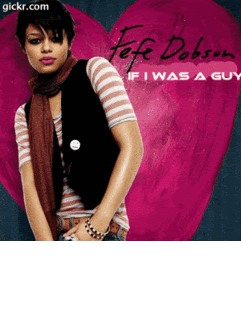





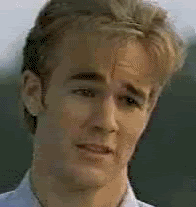
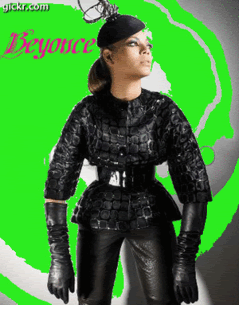























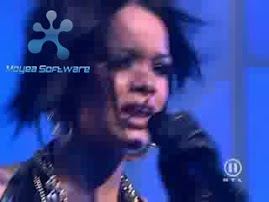
































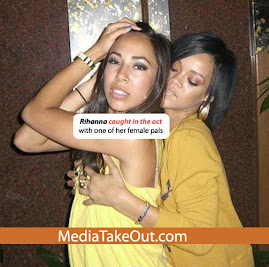





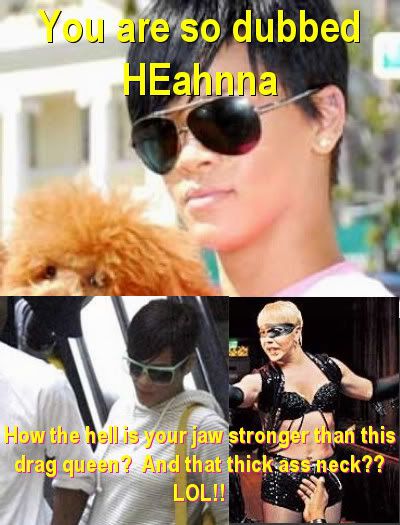
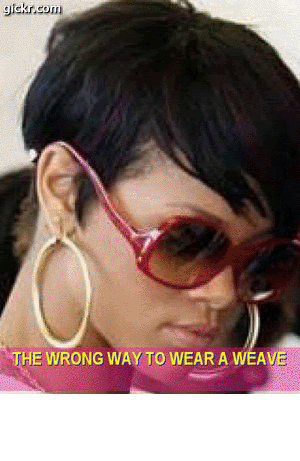
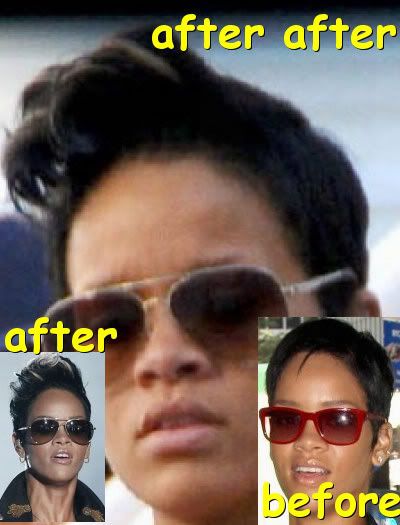
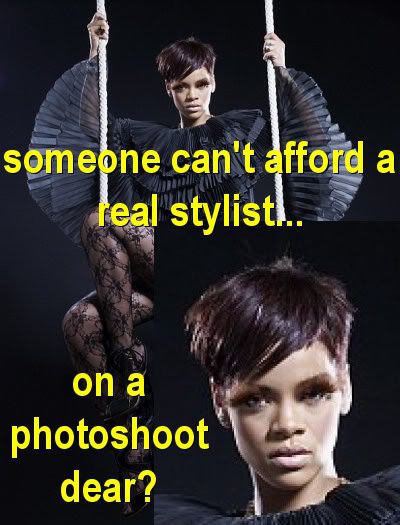
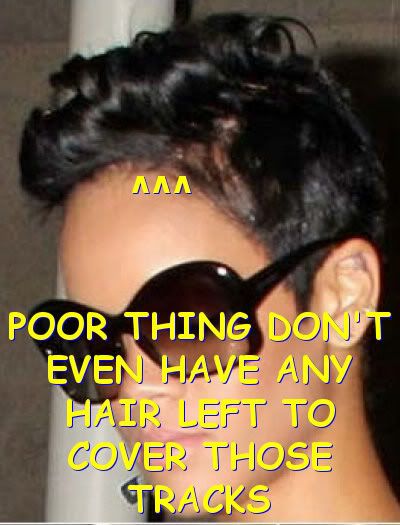



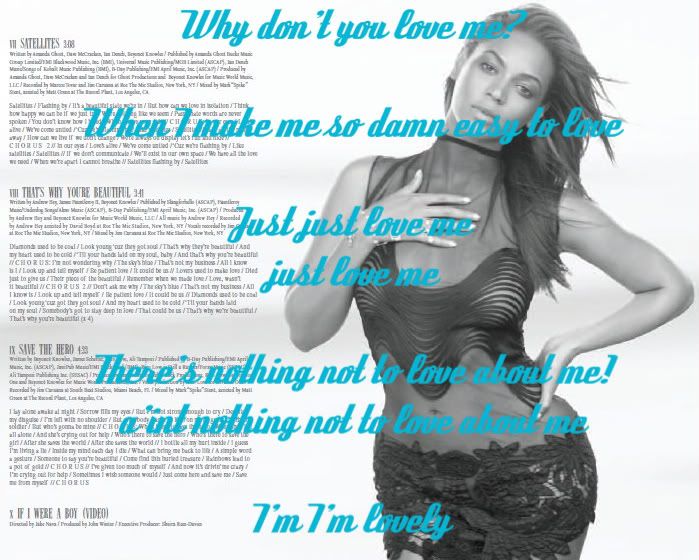


i love love love love it!
ReplyDeleteI just loooove the article!!! especially the part about her & her band & how they are rehearsing for the tour together!! wow! the entire article is great!!
ReplyDeleteLOL Sm0kah you are too funny with that cat at the end!
Cant forget why i love you that much :-D
ReplyDeleteThis cat is just....WAOW ,you kill me.
love the interview -britney end tyra part-
b123